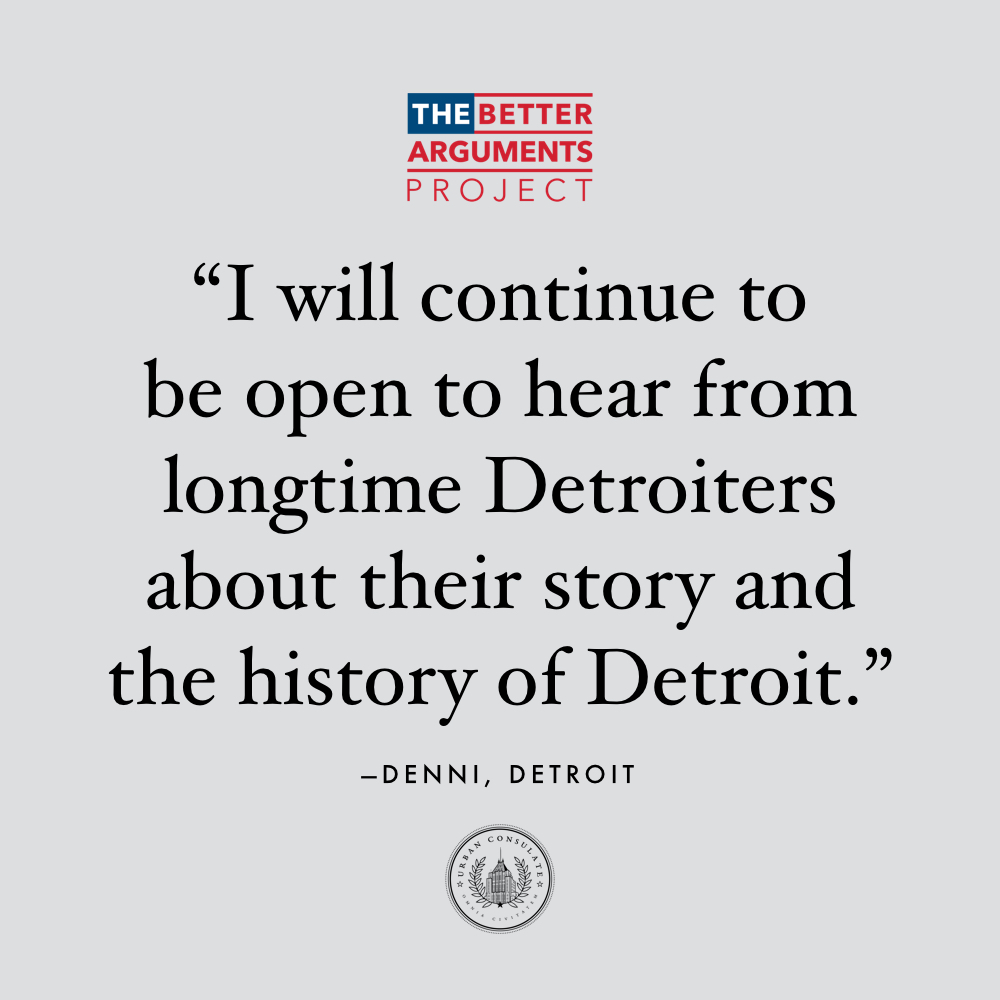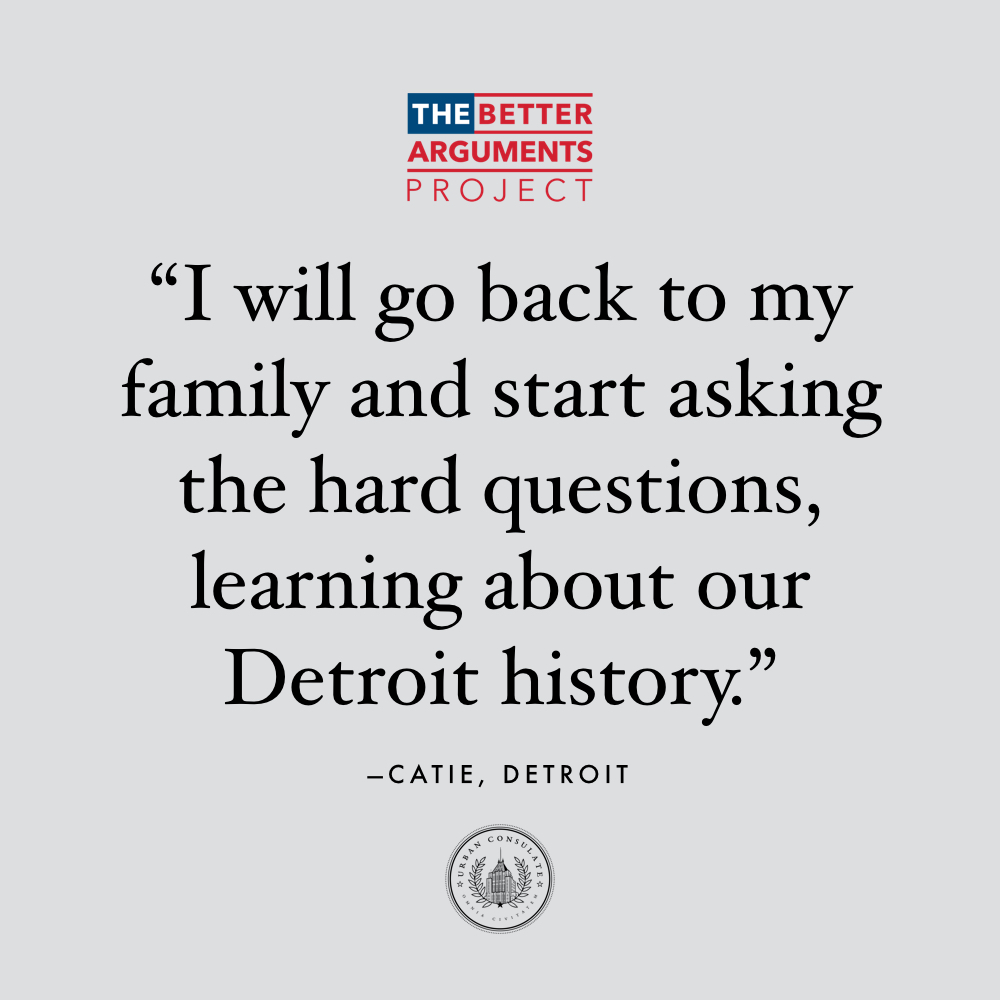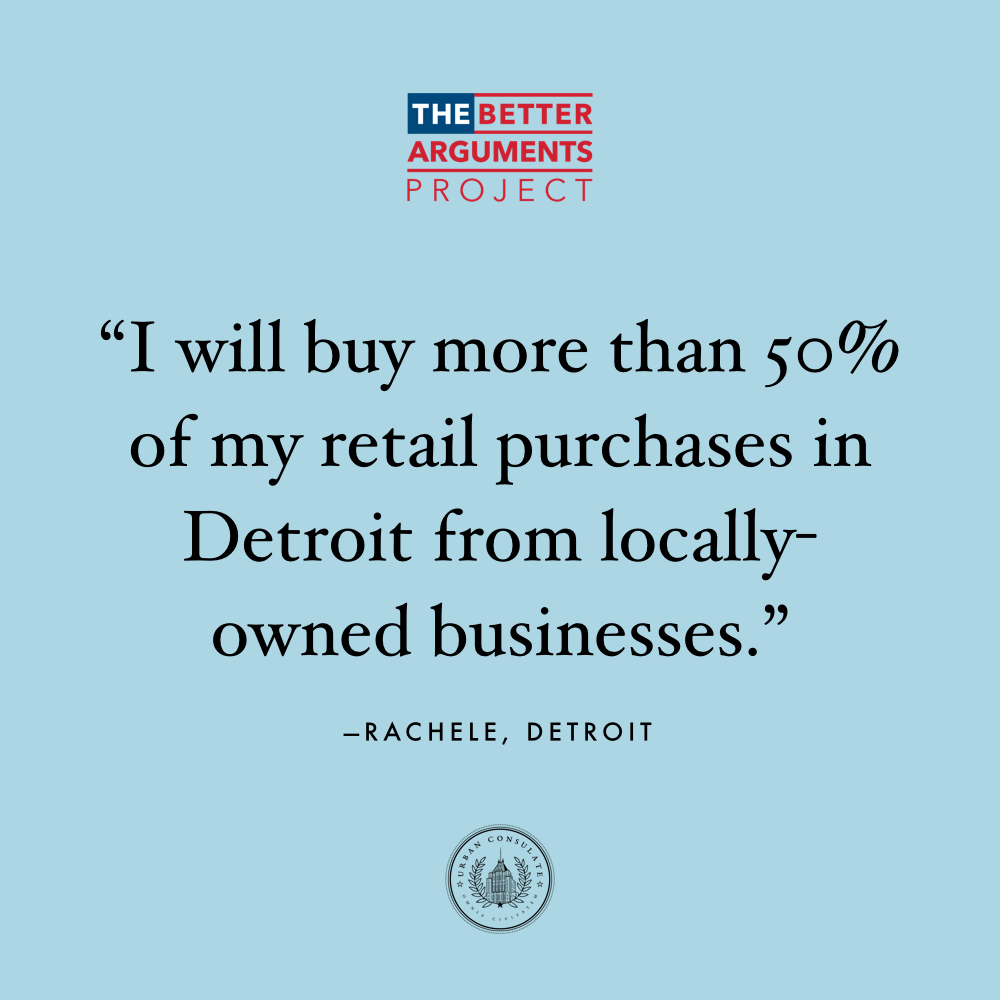On the first day of spring, at the historic Eastern Market in Detroit, Urban Consulate co-hosted The Better Arguments Project—a national initiative of The Aspen Institute Citizenship and American Identity Program, Facing History and Ourselves and Allstate to invite Americans to reach across political, cultural and economic divides for more productive dialogue.
The Better Arguments Project is inspired by the idea that America doesn’t need fewer arguments—just less stupid ones. (An idea we can get behind!)
Founder Eric Liu of Aspen Institute and Citizen University introduced five features of better discourse:
Take winning off the table
Prioritize relationships & listen passionately
Pay attention to context
Embrace vulnerability
Make room to transform
To read more, check out this piece in The Atlantic.
In Detroit, we practiced these principles in conversations between city longtimers and newcomers, who at times have been pitted against one another (even unwittingly or unwillingly) about changes happening in the city.
Some took issue that this is not an “argument” but a conversation — a perspective we deeply appreciated. Many agreed we need to have better dialogue across generational, geographic, racial & economic difference, and came eager to learn & practice skills to do that.
To start off the morning right, Detroit writer & storyteller Marsha Music opened with a reading of her poem, Just Say Hi: The Gentrification Blues. When moderator Lauren Hood asked the audience of 200 community members, “Who here has had their consciousness shifted by Marsha?” a sea of hands went up.
Then breakout conversations were led by Jennifer Jones Clark of Facing History and Ourselves, who grew up on Detroit’s Eastside, and shared her own ambivalence about how the city is changing.
So did it work? Did the principles foster productive dialogue?
Of course conversations at each table varied, but the ones we participated in and overheard were beautiful and powerful—with many tablemates trading contacts and making plans to keep in touch after the event.
Just to give you an idea, here is a small sampling of “I Will” pledge cards that participants left behind:
To learn more, check out the Twitter Thread and follow @aspencitizen and @facinghistory for tools & tips to #ArgueBetter.
Photographs by Valaurian Waller for The Aspen Institute






























